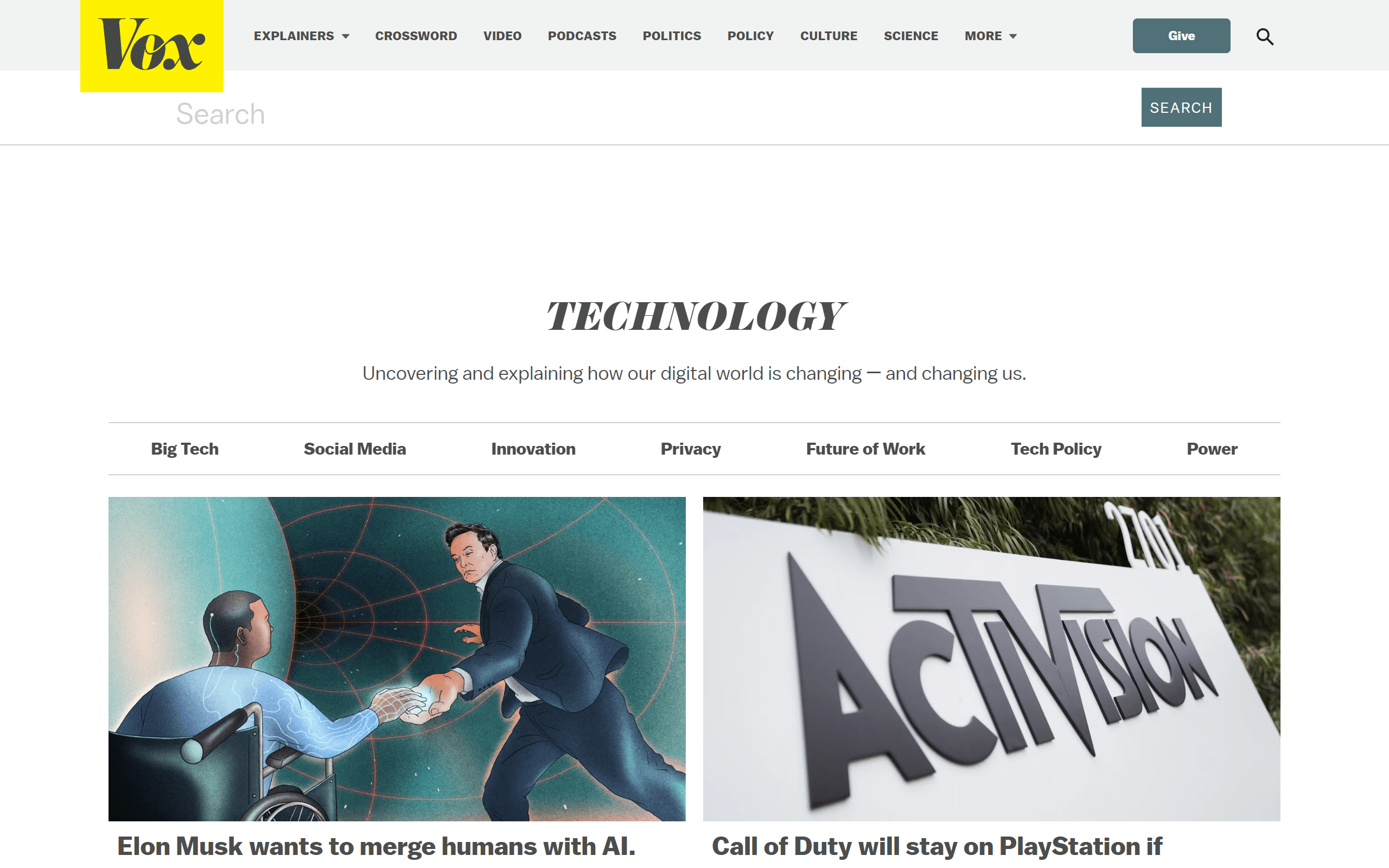Check Out Thought-Provoking Articles on the Best tech blog for Tech Lovers
Check Out Thought-Provoking Articles on the Best tech blog for Tech Lovers
Blog Article
How Blockchain Innovation Is Revolutionizing Data Safety
Blockchain modern technology is basically changing the landscape of information safety by presenting a decentralized structure that assures improved transparency and resilience. Unlike typical systems, which depend on central information databases, blockchain disperses data throughout a network, reducing susceptabilities and single factors of failure. The usage of advanced cryptographic techniques guarantees that data continues to be tamper-proof, promoting trust fund amongst users and stakeholders.
The Essentials of Blockchain
Blockchain modern technology, a revolutionary concept in digital data monitoring, essentially changes how info is kept and safeguarded. At its core, a blockchain is a dispersed ledger that tapes purchases throughout a network of computers, making certain openness and immutability.
Secret to understanding blockchain is the hashing procedure, which secures purchase information into a distinct alphanumeric code. This cryptographic feature makes sure that any kind of modification in the transaction data leads to a totally various hash, thereby safeguarding against meddling. The agreement device, an additional critical component, verifies and validates new transactions with a network of nodes, thus getting rid of the need for a centralized authority.
Furthermore, blockchain's append-only structure makes sure that data, as soon as added, can not be deleted or altered. This characteristic assurances a proven and long-term record of deals, promoting count on among participants. Therefore, blockchain gives a durable structure for information stability, supplying markets a reliable technique for tracking and handling digital information in a protected, clear fashion.
Decentralization and Security
Decentralization, a core principle of blockchain technology, substantially enhances data safety and security by dispersing control across a network rather than counting on a particular, central entity. By dispersing information throughout many nodes, blockchain makes sure that also if one node is jeopardized, the whole network continues to be protected.

Moreover, decentralization equips users with better control over their data. Each participant in the network has accessibility to the whole blockchain, permitting them to confirm and audit purchases independently. This transparency fosters trust amongst customers, as they do not have to count on a main authority to guarantee data honesty. In general, decentralization contributes in enhancing information protection in blockchain networks.

Cryptographic Methods
At the heart of blockchain technology, cryptographic methods play a pivotal function in securing data, making sure both discretion and honesty. Cryptography in blockchain uses a mix of uneven and symmetrical formulas to secure information, making it accessible just to authorized events.
Hash functions are another vital element, transforming input data right into a fixed-size string of personalities, successfully producing a distinct digital fingerprint for each block. This ensures that any attempt to modify the information will result in a completely various hash, hence maintaining the immutability of the blockchain. Digital trademarks confirm the authenticity and honesty of deals, offering a layer of non-repudiation.
The decentralized nature of blockchain, combined with robust cryptographic techniques, removes the requirement for intermediaries, reducing possible vulnerabilities. As blockchain technology progresses, innovations in cryptography such as zero-knowledge evidence and homomorphic encryption proceed to improve safety find this and security measures, better fortifying information here defense in this advanced digital ledger system.
Usage Situations Throughout Industries

In the health care market, blockchain makes sure the safe and secure storage space and sharing of patient records, advertising interoperability while securing sensitive data from unauthorized accessibility. This technology equips clients with control over their case history and assists in seamless sychronisation among healthcare companies.
Supply chain administration benefits considerably from blockchain's immutable ledger, which ensures traceability and credibility of items from origin to consumer. By improving transparency, blockchain aids minimize concerns such as counterfeiting and dishonest sourcing.
Furthermore, blockchain's decentralized nature is reshaping the energy sector by making it possible for peer-to-peer power trading, where consumers can deal excess renewable resource directly. This fosters a more sustainable and efficient power environment.
In the realm of intellectual home, blockchain gives a tamper-proof platform for designers to sign up and safeguard their jobs, making certain rightful attribution and reasonable settlement. These diverse usage situations underline blockchain's function as a crucial force in redefining information safety throughout markets.
Future of Data Defense
As we want to the future of information protection, blockchain modern technology is positioned to play a pivotal function in safeguarding digital information. With its decentralized and immutable features, blockchain uses a durable framework for securing delicate information versus unapproved accessibility and cyber risks. This modern technology ensures that once data is videotaped, it is nearly impossible to modify without detection, therefore giving a significant advantage over conventional information storage techniques.
The assimilation of blockchain with other innovative modern technologies, such Read Full Article as synthetic intelligence and the Net of Points (IoT), is anticipated to improve data protection techniques additionally. By leveraging clever agreements, companies can impose and automate protection methods, reducing human error and enhancing effectiveness. Furthermore, blockchain's capacity to give traceable and transparent purchases will boost trust fund and accountability in information monitoring techniques.
As governing landscapes advance, blockchain's compliance-friendly nature will certainly come to be increasingly pertinent. It can aid companies satisfy strict data protection regulations, such as the General Information Defense Guideline (GDPR) and the California Customer Privacy Act (CCPA), by providing proven documents of information processing activities. Inevitably, blockchain's one-of-a-kind features setting it as a transformative tool in the ongoing quest to secure the electronic world against ever-evolving cyber hazards.
Verdict
Blockchain innovation represents a standard change in information protection by leveraging decentralization and cryptographic methods to improve openness, count on, and data honesty. Its capability to remove single factors of failing and utilize consensus devices considerably decreases the threat of scams and cyberattacks. This ingenious framework not just equips customers with higher control over their data yet likewise aligns with regulative conformity. As cyber dangers develop, blockchain becomes an important device for robust information protection throughout numerous markets.
Blockchain innovation is fundamentally changing the landscape of data safety and security by presenting a decentralized framework that assures improved openness and strength. Unlike standard systems, which rely on centralized data databases, blockchain distributes data throughout a network, minimizing vulnerabilities and single factors of failure.Decentralization, a core concept of blockchain innovation, substantially enhances data safety and security by dispersing control across a network rather than counting on a single, centralized entity.At the heart of blockchain modern technology, cryptographic strategies play an essential role in protecting data, making sure both discretion and honesty.Blockchain modern technology stands for a standard change in information security by leveraging decentralization and cryptographic techniques to enhance transparency, count on, and data integrity.
Report this page